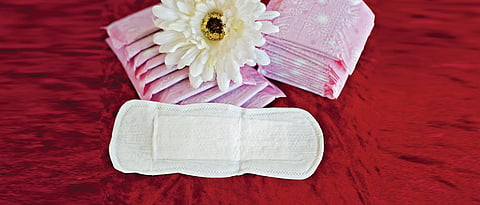

Pune: Doctors from the city speak about how sanitary napkins, due to their high cost, are still a non-affordable commodity for many. Moreover, there is an increase in pelvic inflammatory disease (PID) among women as a result of poor menstrual hygiene. According to doctors, there is a need for more awareness about PID among women which if neglected can lead to infertility.
Speaking to Sakal Times, Dr Ramesh Bhosale, Professor and unit Head of Obstetrics and Gynaecology Department of the Sassoon General Hospital said that there has been an increase in PID.
“In PID the infection starts from the reproductive tract in women and goes up to the pelvic. One of the primary causes of the infection is unhygienic use of sanitary napkins, like a prolonged period of use of napkins, not changing pads after four hours and so on. If the infection is neglected it may affect the fallopian tubes in turn affecting fertility,” said Dr Bhosale.
He further added that if the napkins are moisture laden it may aid the growth of bacteria and fungi leading to various other problems and hence menstrual hygiene is of utmost importance.
Echoing similar views, fertility expert Dr Nameeta Mokashi-Bhalerao of Nova IVI Fertility said that about five per cent patients who seek fertility treatment have issues due to the neglect of PID.
“It could be manifest in many ways, one is where the fallopian tube is not cooperating and giving the embryo the right medium for culture and others which affect the normal medium required for reproduction. Most of the time, these are silent cases and due to lack of awareness no patients come forth,” said Dr Bhalero.
Doctors also said that due to the taboo attached to menstrual cycles the issue of menstrual hygiene is often not spoken about.
Non-affordability of sanitary napkins
Speaking to Sakal Times, Pravin Nikam, Founder of Roshni Foundation, which works for menstrual hygiene in rural areas, said that sanitary napkins are often economically not viable for many women.
“More than that, there is a need to promote sustainable menstrual hygiene where we also talk about the menstrual waste generated and how to dispose it of in an eco-friendly way. As a foundation, we help girls and women understand reusable options like cloth menstrual pads, menstrual cups, biodegradable pads, period panties and other environment-friendly products. Biodegradable sanitary pads is a better option as they are made using reusable clothes or by natural products like banana and jute fibre. There are several other alternatives to sanitary pads as well, which include menstrual cups which can be worn for up to 12 hours and last you for years, which is also one of the most sustainable and environment-friendly menstrual products,” Nikam said.
